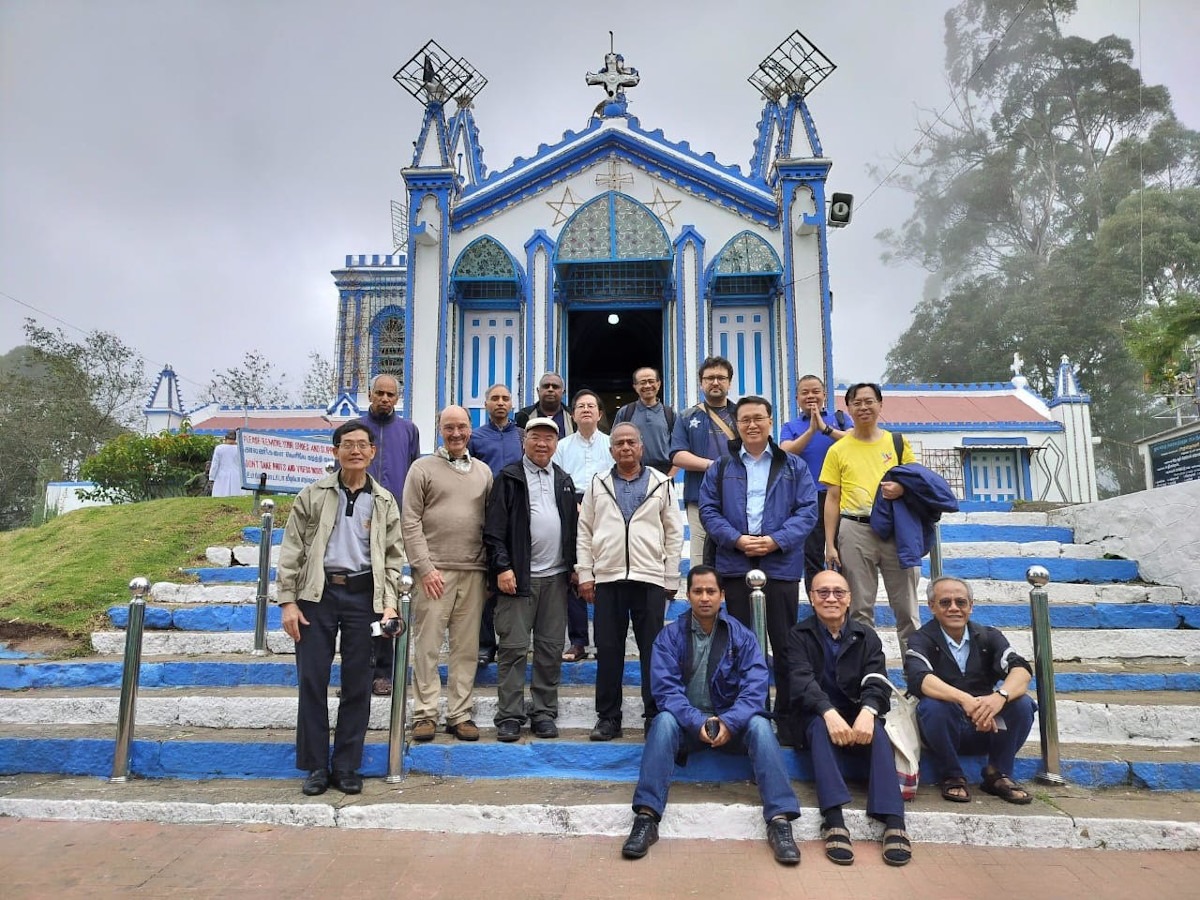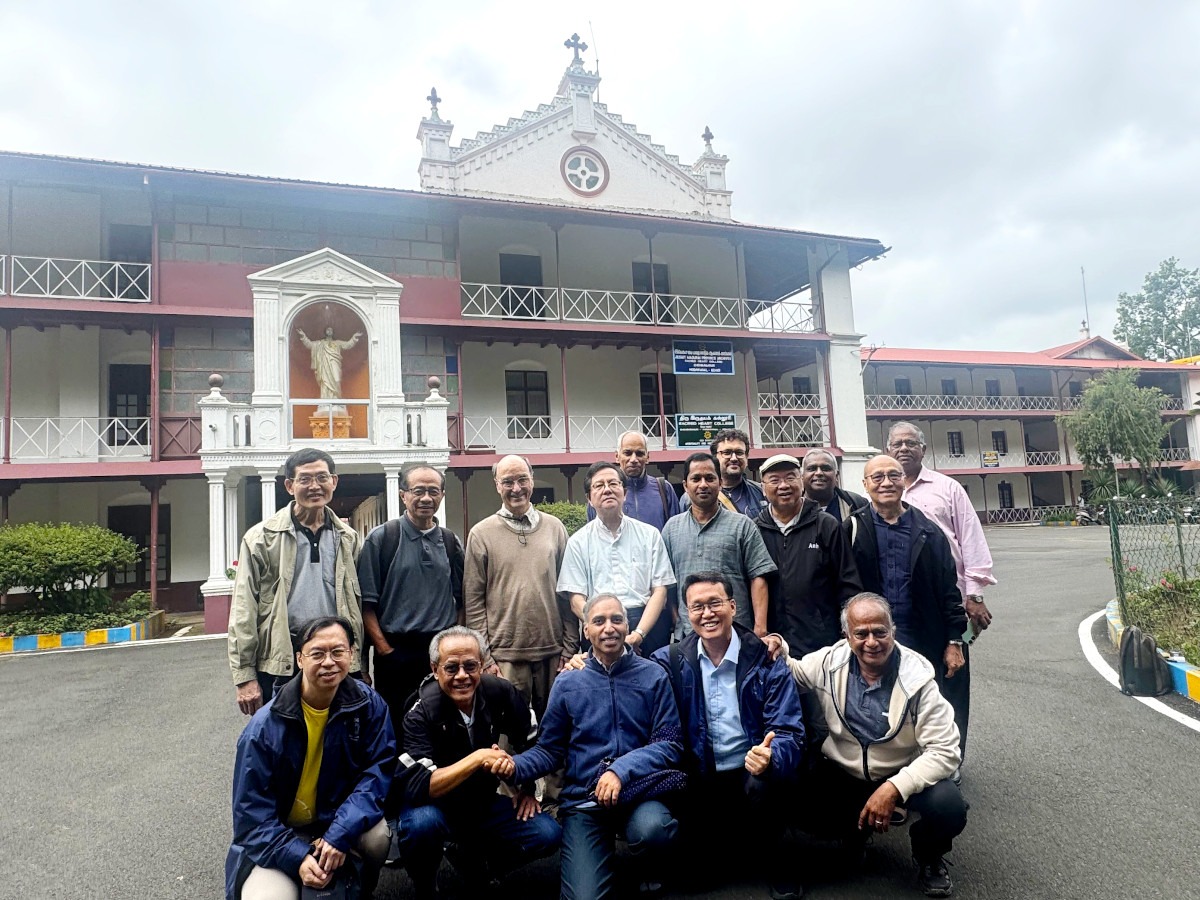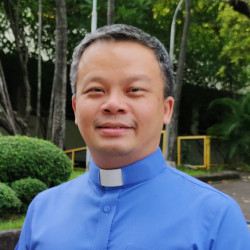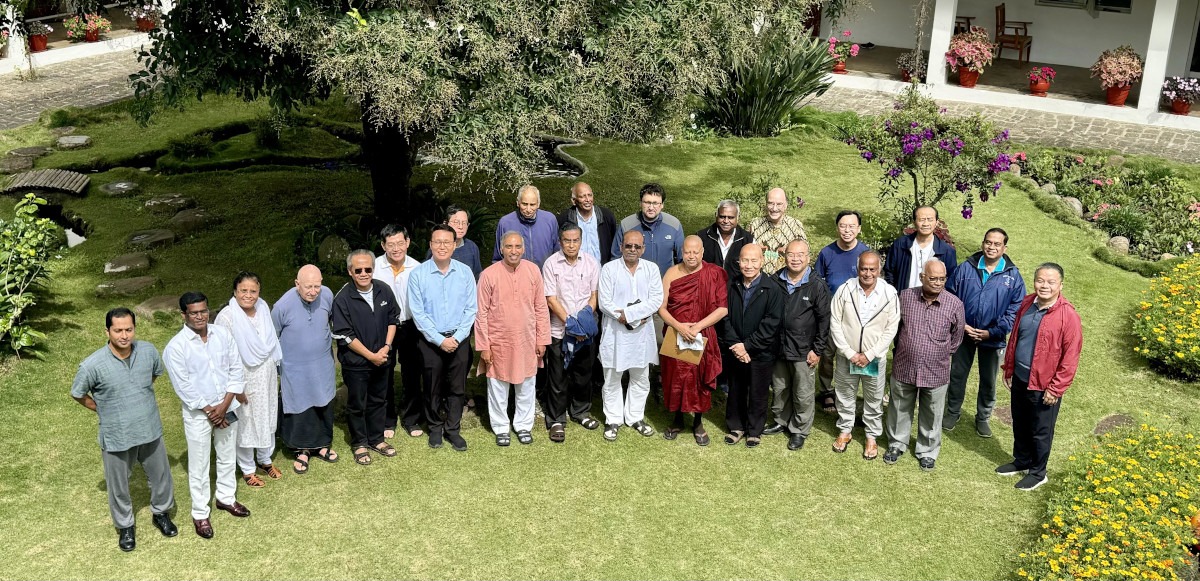
In what felt like an irony, it was the first time for the group of Jesuits engaged in Buddhist Studies and dialogue with Buddhists to spend so much time meditating together. Fifteen Jesuits from Asia Pacific and South Asia, joined by a layperson from Singapore, a Vietnamese Maryknoll priest working among migrants in Japan, an American diocesan priest-scholar, an Australian Zen master, and the Archbishop of Mandalay, joined the daily meditation times, and many found the experience very powerful— to be united in silence, sitting together in quiet meditation.
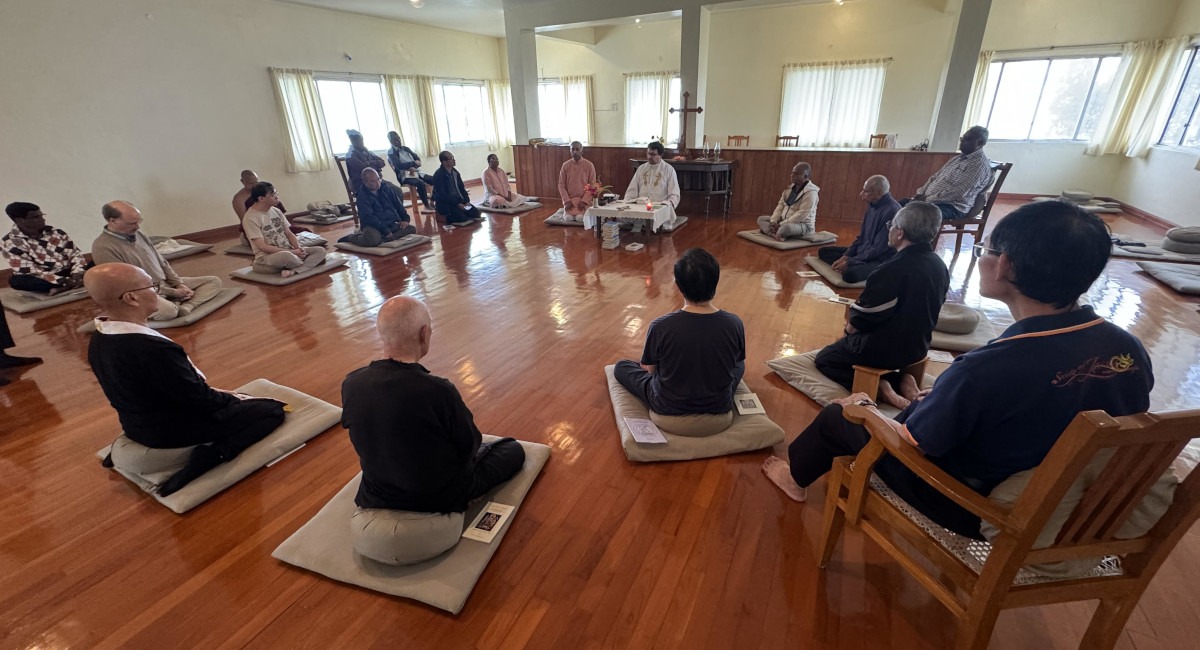
The Ven Buddha Pragash, an Indian Buddhist monk based in Chennai, also joined the meeting and shared his experiences. There were formal presentations on Buddhism in India by Dr Rao Mallampati, the impact of Buddhist meditation on Christian prayer by Fr Leo Lefebure (joining the meeting for the second time), and dialogue with Buddhists in Myanmar by Archbishop Marco Tin Win of Mandalay. It was the first time for a bishop to be with the group, and it was made possible by the invitation of the Jesuits in Myanmar.
On the third day, there was time to visit key places in Kodaikanal, which has a large Catholic population. The French Jesuits left an enduring legacy in the establishment of many churches and mission stations. The group visited Shenbaganur, a Jesuit complex, which houses the Archives, Tertianship, museum of natural history, and various social centres hosted by the Madurai Jesuits. The house, well preserved after more than a century, used to be the formation house for all missionaries arriving in India. In the town centre, a huge artificial lake is only one of many projects that earlier Jesuits inspired to link the people more closely together.
Another place of interest was the big shrine of Our Lady of La Salette, a popular place of pilgrimage, built by a priest who had fallen ill and promised to Our Lady that he would build her a shrine if he would be healed.
